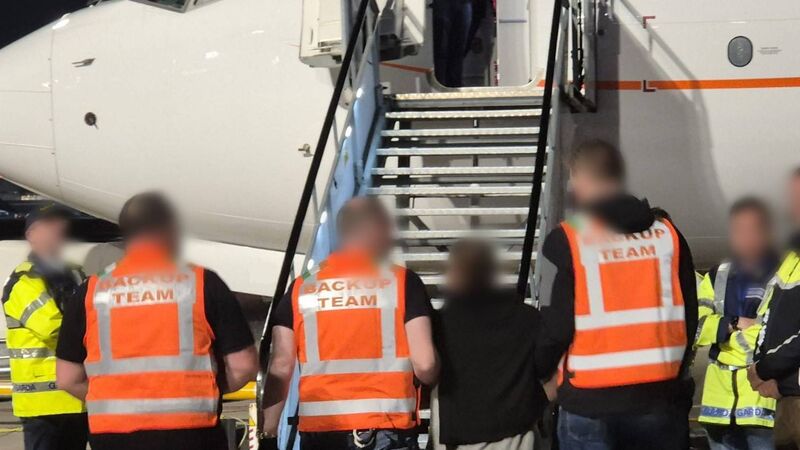Copying the UK's unpopular, untested migration model looks like political opportunism

The Garda National Immigration Bureau removing people from the State on a chartered flight which left Dublin Airport in April for Georgia. Photo: Garda Press Office
As Ireland absorbs Wednesday’s announcements on major changes to citizenship and family reunification rules, it’s clear the Government has chosen to pursue a much harsher approach to integration.
The speed at which these proposals have surfaced makes it difficult to avoid the conclusion that this is political opportunism. The new measures will include a requirement that refugees and migrants applying for citizenship must be ‘self-sufficient’ and not have received certain social welfare supports in the previous two years.
















